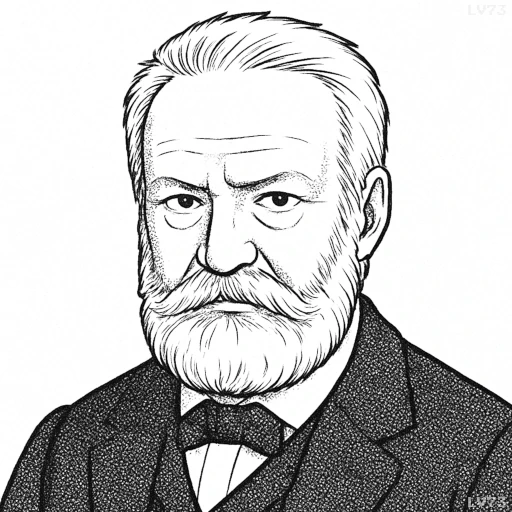“Scepticism, that dry caries of the intelligence.”

- February 26, 1802 – May 22, 1885
- Born in France
- Author, poet, playwright
table of contents
Quote
“Scepticism, that dry caries of the intelligence.”
Explanation
Victor Hugo describes scepticism as a form of intellectual decay, using the metaphor of dry caries, a condition that erodes and weakens teeth over time. By comparing scepticism to a disease that gradually eats away at the mind, Hugo suggests that excessive doubt or questioning, when taken to extremes, can undermine one’s ability to engage with truth, knowledge, and meaning. Scepticism, in this sense, is not merely healthy questioning or critical thinking, but a destructive force that prevents intellectual growth and leads to stagnation or paralysis in understanding.
Hugo, who lived through significant political and social changes in France, was often concerned with the balance between reason and emotion, logic and faith. While he valued critical thinking, he believed that unchecked doubt could lead to a lack of conviction and purpose. In his view, scepticism could paralyze the mind, preventing individuals from taking decisive action or embracing the ideals that drive progress and reform.
In the modern world, this quote highlights the potential dangers of being overly cynical or doubtful without seeking constructive ways to resolve uncertainties. While critical thinking remains essential for progress, excessive scepticism can lead to indecision and disillusionment, leaving individuals unable to contribute meaningfully to the world around them. Hugo’s words remind us to approach doubt with balance—recognizing its value without letting it consume our ability to believe, act, and move forward.
Would you like to share your impressions or related stories about this quote in the comments section?



